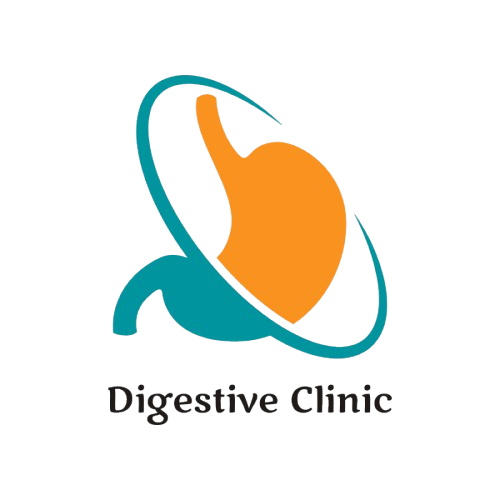Introduction
Intestinal obstruction is a serious condition where the intestines are either partly or completely blocked. This blockage can disrupt the normal flow of food and fluids, causing various health issues. Understanding what this is and why it matters can help in recognizing early warning signs, leading to better management. It affects many people across the globe and in India too, making it quite common. Statistics reveal a significant number of hospital visits for this problem worldwide. Recognizing early will aid in proper treatment and prevent complications. Being aware is crucial, and knowing what to watch out for can make a huge difference in outcomes.
Spotting the Symptoms
Recognizing the signs of a digestive obstruction can prevent severe consequences. It’s essential to seek medical help if symptoms arise. Common indications include abdominal pain, bloating, and nausea. These symptoms signal that something is hindering the intestinal process. It’s important to notice if there are changes in bowel habits. For instance, one might experience fewer bathroom trips or even constipation due to bowel occlusion. Difficulty passing gas or having diarrhea might also indicate a problem with the intestines. Therefore, distinguishing these symptoms is not only necessary but urgent to ensure prompt treatment. When these signs appear, a medical evaluation is crucial to determine the next steps.
Unraveling the Causes and Risk Factors
Several factors contribute to bowel intestinal obstruction. These can be categorized into mechanical and functional types. Mechanical causes include anything physically blocking the intestines, like hernias which can trap part of the intestine, or tumors that press on it. Another critical risk factor is inflammatory bowel diseases, which can cause swelling and blockage.
Functional bowel occlusion occurs when the muscles or nerves controlling the intestine stop working properly. Also, medications and poor diet, such as low fiber intake, can increase risks. Awareness of these factors can help in early detection. Recognizing these risks and practicing preventive measures like a healthy lifestyle can mitigate the chances of developing this condition. Prioritizing a balanced diet and maintaining regular check-ups can lower these risks significantly.
Navigating the Diagnostic Process
Diagnosing colonic obstruction involves several steps. First, a medical assessment is necessary. Doctors often use imaging techniques to get a clear picture of the intestines. Tests such as X-rays and CT scans are standard procedures for identifying any blockages. Sometimes, barium enemas are used to highlight the bowel structure in detail. Being ready for these tests can alleviate many concerns and help in getting accurate results. Patients need to communicate openly with their healthcare providers to understand reasons behind the tests and how they contribute to planning the appropriate treatment.
Exploring Treatment Options
Treating bowel obstruction in small intestine can involve several avenues.
Non-Surgical Interventions
Non-surgical methods are frequently the first option. Fasting is effective as it reduces the strain on the digestive obstruction. Additionally, intravenous (IV) therapy is crucial. It keeps one hydrated and nourished when eating isn’t possible. Using nasogastric tubes can relieve pressure by removing excess air and fluids from the stomach. Doctors might also encourage light movements and simple exercises to alleviate bowel occlusion. These can help in restoring intestinal function. Listening to healthcare professionals and following their advice plays an important role in non-surgical recovery measures.
Surgical Approaches
Some cases require surgery, especially if the blockage is severe and non-surgical treatments fail. Criteria for surgery generally include persistent symptoms and risk of complications. The types of surgical procedures vary. A resection might be needed, where the blocked segment is removed. In other cases, correction procedures can reposition parts of the intestines or release trapped sections. Using stents can also help by keeping passageways open and easing digestive obstruction. Recovery includes medical supervision to ensure healing and proper function.
Post-Treatment Care and Lifestyle Adjustments
Effective recovery from bowel intestinal obstruction involves regular follow-ups with healthcare providers. It’s a crucial step to ensure that the condition does not recur and to monitor any ongoing symptoms. Adjusting lifestyle and diet is equally important. Adding more fiber can significantly reduce future risks, while staying hydrated is also vital for digestive health. Collaborating with medical practitioners to adapt personal habits with medical advice is beneficial. Changing dietary habits, such as avoiding junk food and incorporating whole grains, helps maintain intestinal health.
Prevention and Promoting Awareness
Prevention plays a key role in managing bowel occlusion. A fiber-rich diet is essential. Whole foods like fruits and vegetables help keep the intestines functioning smoothly. Staying hydrated throughout the day also supports digestion. Awareness initiatives, especially in India, highlight the importance of recognizing symptoms early. Promoting timely medical interventions can save lives. Education on managing one’s lifestyle fosters better health practices. Being proactive and engaging in community health programs raises awareness about this disorder. Encouragement from friends and family in attending programs can make a remarkable difference in prevention.
Conclusion
Understanding ntestinal obstruction is critical for early detection and successful treatment. It’s vital to recognize the signs, such as abdominal discomfort and changes in bowel habits. Emphasizing the importance of timely cures and regular follow-ups assists in managing this condition effectively. Raising awareness and educating oneself about these aspects are steps toward maintaining intestinal health. Implementing healthy habits and remaining alert can contribute significantly to preventing this disorder. Those experiencing persistent symptoms should always seek medical advice promptly.


